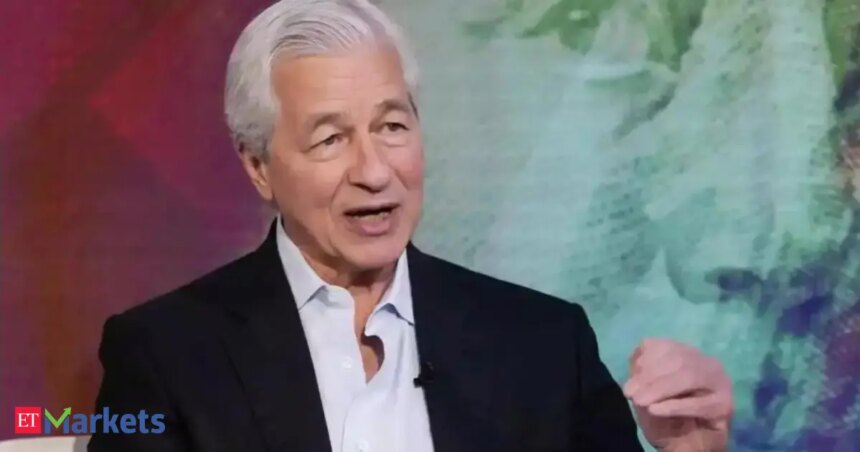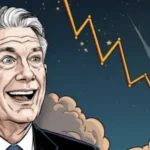In a candid assessment of the current financial landscape, Jamie Dimon, the CEO of JP Morgan, has raised alarms about the potential for a significant downturn in U.S. stock markets. Dimon indicated that the chances of a major market correction are more pronounced than many investors seem to recognize, suggesting that such a downturn could occur within the next six months to two years.
During a recent event, Dimon expressed that he is “far more worried about the correction than others,” attributing this concern to a host of factors that contribute to a climate of heightened uncertainty. Geopolitical tensions, extensive fiscal spending, and a global arms race are among the risks he pointed to. He warned that “all these things create issues we don’t yet know how to answer,” adding that the general level of uncertainty should weigh more heavily on investors’ minds than what might be considered typical.
While acknowledging the role of artificial intelligence in driving market growth, Dimon cautioned against excessive optimism regarding AI investments. He noted that while the technology is genuine and will ultimately yield returns, the history of such industries suggests that many investors could face losses. “AI is real and will pay off overall—just like cars and TVs did—but most investors in those industries didn’t do well,” he stated.
Dimon also turned his attention to the U.S. Federal Reserve, underscoring the critical importance of central bank independence in the face of political pressure. He expressed a willingness to accept former President Donald Trump’s assurances that he would refrain from interfering in Fed operations, despite Trump’s previous critiques of Fed Chair Jerome Powell.
Highlighting the evolving dynamics of international relations, Dimon remarked on how the U.S. has become “a little less reliable.” He acknowledged that some of Trump’s policies have spurred Europe to take action on longstanding issues, such as NATO underfunding and competitiveness.
On the trade front, Dimon conveyed optimism regarding the potential for a deal between the U.S. and India, particularly concerning tariffs imposed on India due to its trade with Russia, especially in the oil sector. He mentioned having discussions with several Trump officials who indicated a desire to roll back those tariffs.
Security concerns were also on Dimon’s agenda, as he previously warned that if conflict were to erupt in the South China Sea, the U.S. could deplete its missile stockpiles in just seven days. He advocated for nations to bolster their defense capabilities, emphasizing the need for increased military investment.
In his remarks, Dimon drew a stark comparison, arguing that while discussions about stockpiling newer forms of wealth, like cryptocurrencies, are prevalent, there is a fundamental need to prioritize traditional forms of security. “I always say we should be stockpiling bullets, guns, and bombs. The world is a much more dangerous place today, and I’d rather have safety than not,” he stated.
The discussion took place in Bournemouth, where Dimon announced a significant investment of £350 million into JP Morgan’s local campus, alongside a £3.5 million philanthropic commitment aimed at supporting community organizations.
As the conversation surrounding the economic outlook and geopolitical challenges continues, Dimon’s insights offer a thought-provoking perspective on the risks that lie ahead for investors and global markets.





